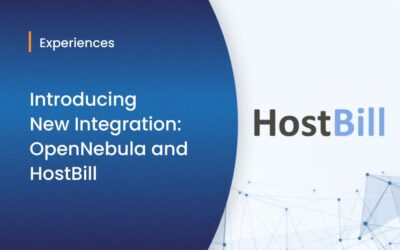Universities are nowadays facing the challenge of adapting themselves to a new generation of students, the so-called Millennial generation, for whom technological devices are essential tools to carry out their daily tasks.
At the Université Catholique de Louvain, we wanted to be aligned with the new technological trends and thus be able to embrace BYOD in order to give our students the possibility to use their own devices to access the same software as if they were in the standard computer classrooms from anywhere and anytime.
VDI was the key to meet our needs, and we were clear that we wanted the OpenNebula orchestrator to be the cornerstone of our virtual desktop infrastructure. The UDS Enterprise VDI & vApp connection broker, which is fully compatible with OpenNebula, was the missing component.
Thanks to OpenNebula + UDS Enterprise VDI joint solution, we are progressively giving our 37,000 students access to Windows or Linux standard environments from outside the classrooms. Teachers now have a teaching environment independent from their own computer and researchers can access software on demand and with better calculation performance, thanks to remote applications.
All with a high availability VDI infrastructure, very easy to access and manage, and with lower costs for students and the IT Department.
If you’d like to know how our VDI infrastructure was built, the different components used and their role in the platform, and how the IT staff deploys and manages the virtual desktops, don’t miss our talk in the next OpenNebula Conf 2018 in Amsterdam: “UCLouvain Case Study – VDI for 37,000 students with OpenNebula“.
There, we will also explain how we are extending the use of OpenNebula to remote applications and what high availability infrastructure we are now implementing to guarantee a 24/7 available service.
Hope to see you next Tuesday, November 13 in Amsterdam!



0 Comments